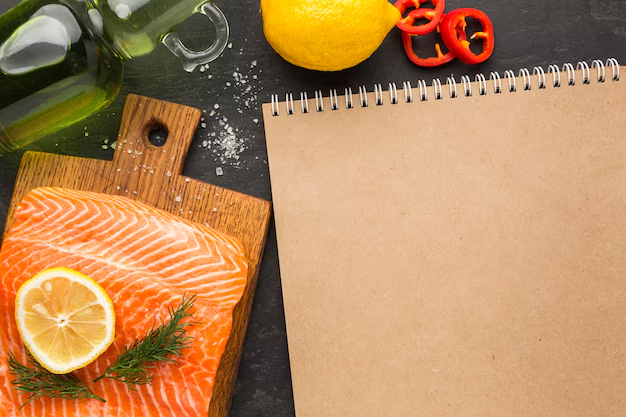How Long Does Fresh Salmon Stay Good in Your Fridge? 🐟
When it comes to enjoying seafood, fresh salmon is often at the top of the list. Its versatility, flavor, and health benefits make it a staple in many kitchens. But how long can you actually keep it in the refrigerator before it goes bad? In this comprehensive guide, we will explore the shelf life of fresh salmon and offer useful tips on how to maximize its freshness.
Understanding Fresh Salmon Storage
The Importance of Proper Storage
Freshness matters! The quality and safety of fresh salmon largely depend on how it is stored. Improper storage can lead not only to a loss of flavor and texture but also to the risk of foodborne illness.
Typical Refrigeration Timeframe
Fresh salmon is generally safe to consume when stored properly in the refrigerator for up to 1-2 days. This timeframe can vary depending on the initial freshness of the fish and the specific conditions of your refrigerator.
Influencing Factors
Several factors can impact the shelf life of salmon, including:
- Temperature: Make sure your refrigerator is set at or below 40°F (4°C).
- Packaging: An airtight, moisture-proof package can help preserve freshness longer.
- Fish Quality: Fresher fish will last longer compared to salmon that is nearing its sell-by date.
Signs Your Salmon Has Gone Bad
Visual Cues
When assessing the freshness of salmon, start with a visual inspection. Fresh salmon should have a bright, vibrant color without any discoloration. Look out for:
- Grayish spots or blotches
- Dull or faded pigmentation
Olfactory Indicators
Trust your nose. Fresh salmon has a mild, ocean-like scent. If your fish has an off, sour, or ammonia-like smell, it's best to steer clear.
Tactile Tests
Touch is another effective way to check salmon’s freshness. The fish should be slightly firm to the touch. If it’s overly slimy or sticky, it’s a good sign that spoilage has set in.
Maximizing Fresh Salmon's Shelf Life
Purchasing Tips
- Buy from reputable sources: Quality starts at the source. Purchase salmon from a trusted fishmonger or market.
- Opt for the freshest catch: The fresher it is at purchase, the longer it will last. Look for glossy, firm, and fragrant fillets.
Storing Methods
- Prompt refrigeration: As soon as you get home, place the salmon in the coldest part of the refrigerator.
- Vacuum sealing: Removing air from the packaging can extend its freshness.
Strategic Freezing
If you know you won’t be consuming your salmon within the 1-2 day window, consider freezing it. Freeze immediately upon deciding not to use it within the fridge-safe period.
Freezing Guidelines
- Use airtight containers or freezer bags to avoid freezer burn.
- Label and date your packages to keep track of how long it’s been frozen.
Related Subtopics Worth Exploring
Nutritional Benefits of Salmon
Salmon is packed with nutrients, making it a heart-healthy choice that supports brain function and development. Rich in omega-3 fatty acids, protein, vitamins, and minerals, it's an essential part of a balanced diet.
Cooking Recommendations
When cooking with salmon, there's a multitude of methods to choose from that emphasize its natural, rich flavors:
- Grilling enhances the natural smokiness.
- Baking with herbs can accentuate its tenderness and richness.
- Pan-searing provides a crispy exterior while maintaining a moist interior.
Handling Seafood Safely
Cross-contamination prevention: Always use separate cutting boards for seafood and other food to ensure a safe culinary environment. Additionally, wash hands, utensils, and surfaces thoroughly after handling raw salmon.
Summary of Key Points
Here's a quick overview of how to handle and store fresh salmon:
- 🧊 Refrigeration Window: Store fresh salmon in the fridge for 1-2 days.
- 👀 Check Freshness: Look for vibrant color and mild aroma.
- 🤲 Proper Storage: Keep at or below 40°F (4°C) and use airtight packages.
- 🚫 Avoid Spoilage: Be mindful of off smells and slimy textures.
- ❄️ Consider Freezing: If not consumed promptly, freeze with care.
A Final Insight
Understanding the nuances of salmon storage not only enhances your culinary adventures but also ensures food safety. Whether you're a seafood connoisseur or a casual cook, these tips and insights should help you enjoy fresh salmon without worry. Taking the time to store it properly serves up peace of mind with every delicious bite. So, next time you find yourself at the seafood counter, remember these guidelines for keeping your fresh salmon good in the refrigerator. 🍽️

